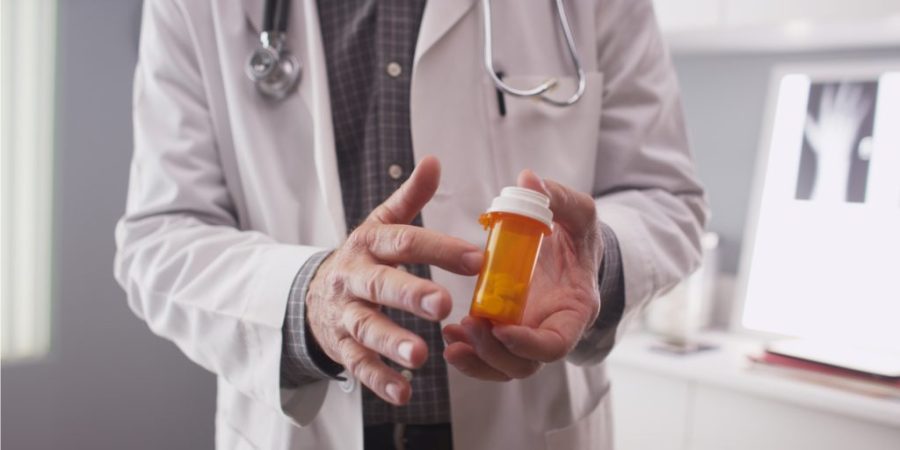
From Springbrook Hospital –
Across the globe, millions of people fight against depression every day. Though it is a common struggle, it is far from hopeless. The resources to help improve one’s mental health exist. Today, we are sharing how to get help with depression by discovering different treatment options and where to access them.
Some individuals claim that those with depression should just “be happier,” or that they aren’t trying hard enough. However, the idea that someone can simply will depression away is a toxic and unhelpful mindset. In reality, depression and other mental disorders pose complex challenges that often require professional guidance to overcome.
Table of Contents
Signs of Depression

Despite depression being one of the most common mental health conditions, many people still misunderstand the effects it can have. It can be difficult to know how to get help with depression because of these prominent misconceptions and stigma.
The truth is, depression involves much more than merely feeling sad. In fact, sadness itself is not a requirement for a depression diagnosis. Some individuals report feelings of emptiness or a lack of any emotions instead.
Other signs of depression can be behavioral, mental, and even physical. For example, someone with depression may demonstrate:
- Melancholy or irritable moods
- Feelings of shame, self-loathing, and worthlessness
- Lethargy and fatigue
- Trouble falling or staying asleep
- Loss or change in appetite
- Difficulty concentrating
- Lack of interest in hobbies and usual activities
- Excessive or uncharacteristic substance use
- Suicidal ideations
In its most intense forms, depression can affect every facet of an individual’s life. For this reason, it is crucial to recognize the signs as early as possible. If you or a loved one are feeling depressed or exhibiting other symptoms of depression, take proactive steps against the potential long-term effects of mental illness.
How to Get Help with Depression
When someone tries to determine how to get help with depression, they may search for a single blanket solution. Unfortunately, there is no “one size fits all” method to treat depression. Everyone has a distinct experience with mental illness, and different situations entail different solutions. It takes a varied approach and, in many cases, a combination of treatments to provide the most effective care.
For that reason, we’ll discuss several common treatments for depression. By using a blend of the following methods, it becomes possible to develop a more comprehensive treatment plan tailored to someone’s unique circumstances.
Lifestyle Changes
People experiencing symptoms of depression may benefit from something as simple as changes to their daily habits. For example, exercise, proper nutrition, a consistent sleep schedule, and engaging in calming activities are all lifestyle changes that can ease the effects of depression.
Those with milder cases of depression may have an easier time implementing these types of adjustments. However, even if someone struggles to make any of the above changes, they should not stop trying.
Cultivating positivity and self-care wherever possible will always serve as a benefit. For example, eating one healthy meal, even if every other meal that week is poor, is still better than not eating healthily at all. Small acts like these can be helpful starting points to help people grasp how to get help with depression.
Talk Therapy
One of the most effective types of treatment for depression is therapy. Talk therapy opens a direct line of dialogue with mental health professionals. Therapists are trained to help patients recognize and solve the problems affecting their mental health. They may challenge unhealthy thought processes or offer advice on how to handle certain social situations.
Many varieties of therapy exist, and it may take time to discover which works best for any given individual. Cognitive behavioral therapy (CBT) is a particularly popular type of talk therapy used to treat depression. During CBT, patients identify negative thoughts at their source and engage in activities to disprove unhelpful beliefs about themselves.
Whether someone partakes in CBT or another type of therapy, they develop many vital skills they can use to aid their recovery. Fundamentally, therapy is an educational tool used to teach people how to get help with depression. It improves communication, emotional processing, self-confidence, and more. Its teachings often provide a solid foundation for additional treatments to build upon.
Depression Medications

Depression can alter chemistry in the brain. Most frequently, it disrupts the production or functionality of neurotransmitters like dopamine and serotonin. These neurotransmitters act as messengers in the body. They pass signals along nerve pathways to and from the brain, interpret the information they receive, and engage the body’s reward center.
Put simply, neurotransmitters like dopamine and serotonin are a key component in triggering happiness. When they malfunction or their production is not adequate, the brain struggles to process happiness correctly, if at all. Thankfully, depression medications exist to resolve this issue.
Every type of antidepressant operates in its own way, which increases the chance of someone finding a medication that works well for them. That said, they do have a common thread between them. Most depression medications work to increase the accessibility of at least one of the neurotransmitters linked to happiness.
Support Groups
While all of the above are effective treatments for depression, the influence of someone’s environment cannot be overlooked, either. If someone wants to learn how to get help with depression, they can start with assessing their immediate surroundings. The state of their home life, their relationships with their family, and how they engage in their community can all have a large impact on their mental health.
In other words, a strong support system is crucial to recovering from depression. A positive, peaceful environment is much more conducive to improving mental health than instability and aggression. Sometimes, though, what surrounds you can feel out of your control. The people around you might bring negativity into your life, or your home life might be erratic. These scenarios make it difficult to focus on healing.
If that’s the case, you may want to consider a residential program for mental health. Treatment centers like Springbrook Hospital introduce you to recovery-minded peers in a calm, safe environment. Even if you currently lack support groups, you can build them back up with the proper resources.
How to Get Help With Depression and Access Mental Health Care
The first step to understand how to get help with depression is to know what that help looks like. Now that we’ve discussed numerous treatment options, one question remains: How does someone gain access to those treatments?
First, be honest with yourself and those around you. Know that it is not selfish to address your own mental health needs. You are not weak or a failure for seeking help. Just as you would visit a doctor for stomach illness, you should pursue treatment for mental illness as well.
Contact a Mental Health Treatment Center
Next, consider getting in touch with a specialized mental health treatment facility. Springbrook Hospital provides adult psychiatric services for those struggling with major depressive disorder, anxiety disorders, and other mental illnesses.
Led by a staff of licensed physicians and mental health professionals, our treatment programs emphasize compassion and independence. We want to help you return to a fulfilling life of long-term stability and contentment. Our patients engage in all of the above treatment modalities as well as several others designed to optimize the recovery process.
To learn more about how to get help with depression, call us at 352-600-3288. You may also fill out one of our confidential contact forms with any additional questions or concerns. Our admissions team will provide any information you need to help you get started on the path to recovery.
The post How to Get Help With Depression: Tips and Treatments appeared first on Springbrook Hospital.
Source
Original Author: Springbook Hospital

